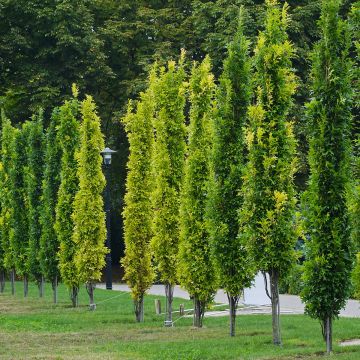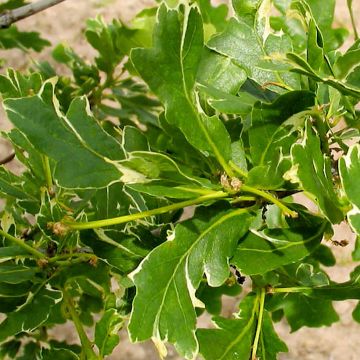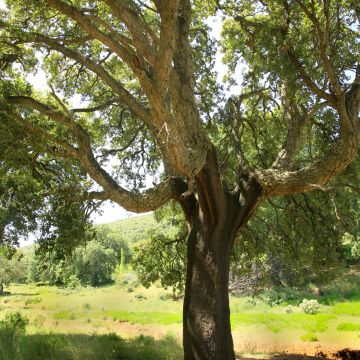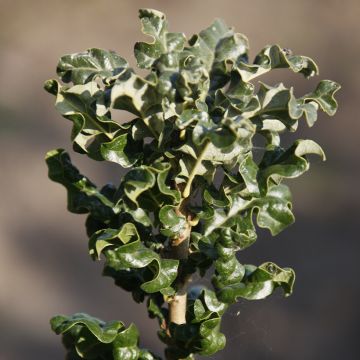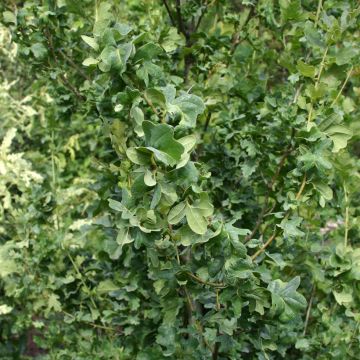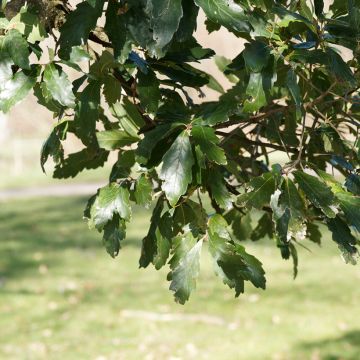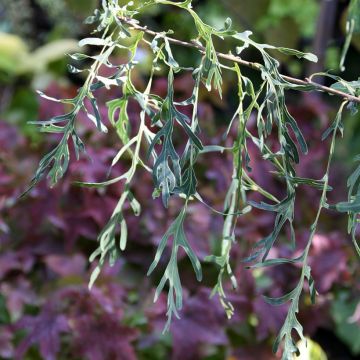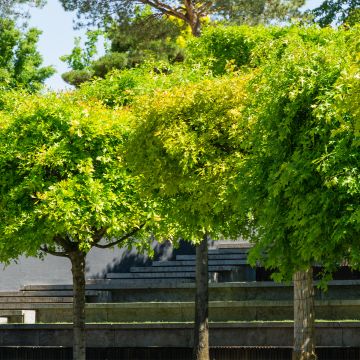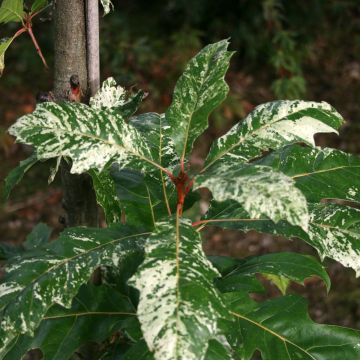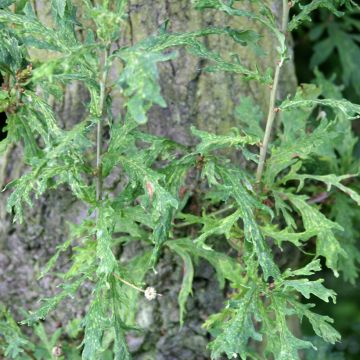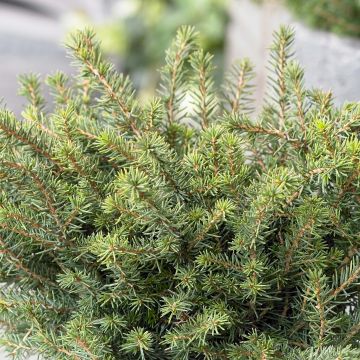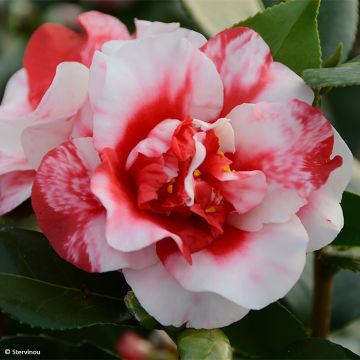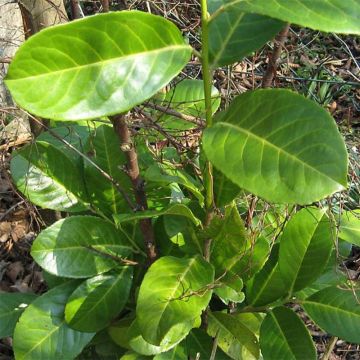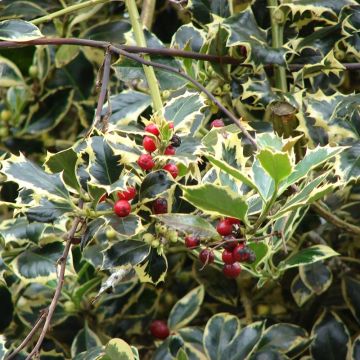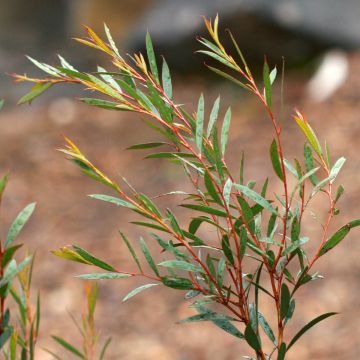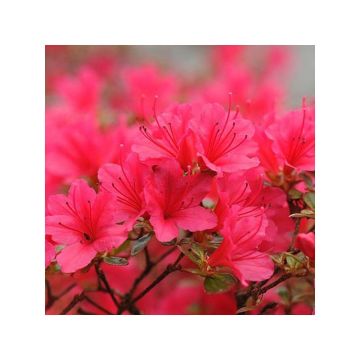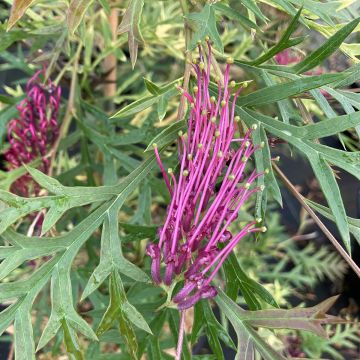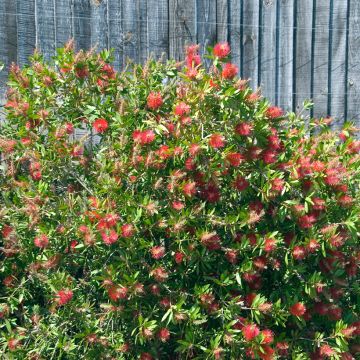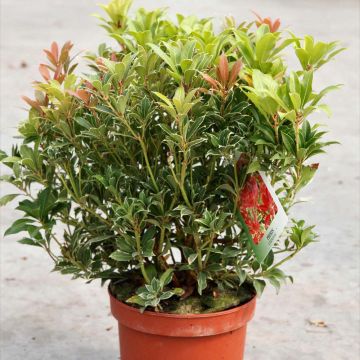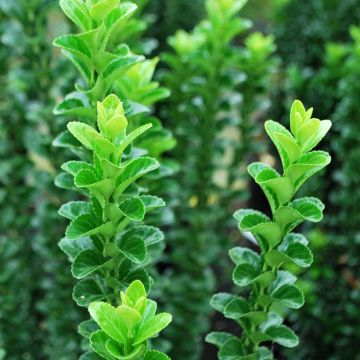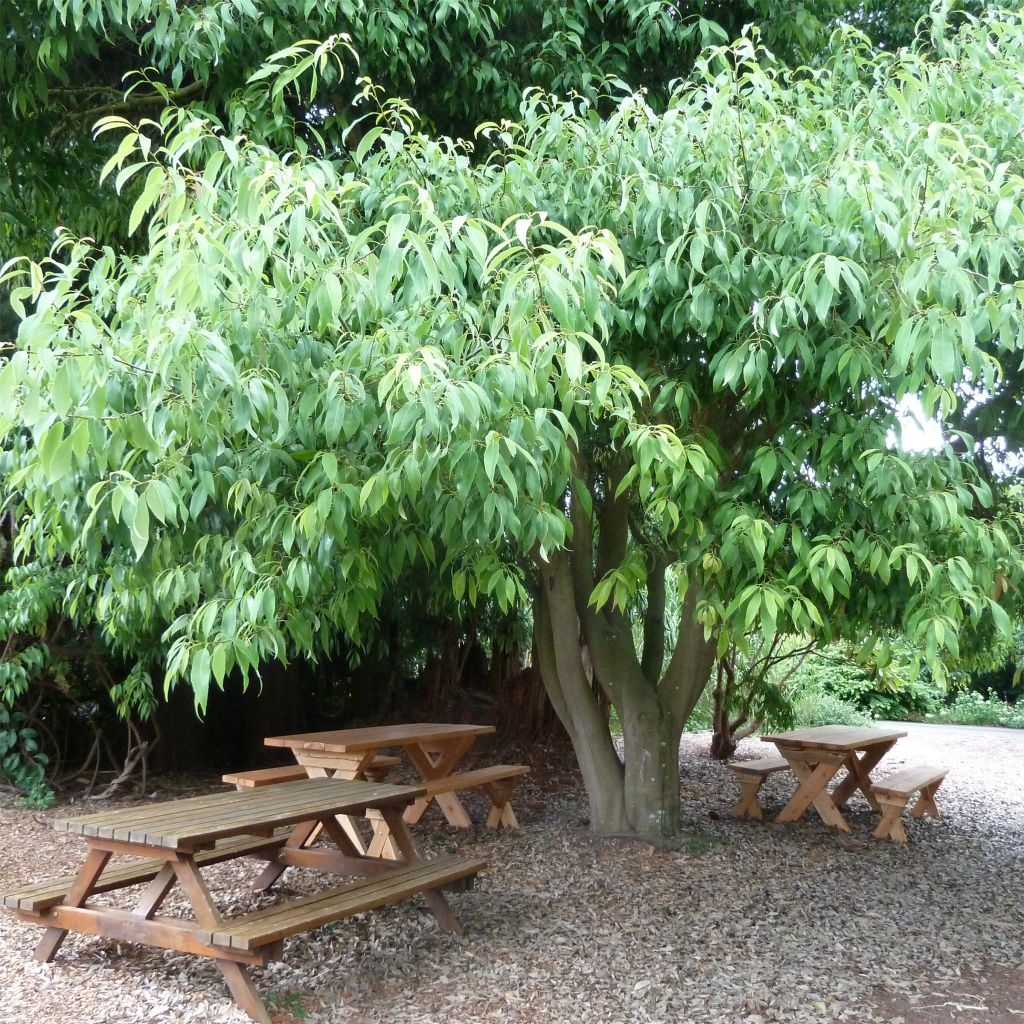

Quercus myrsinifolia
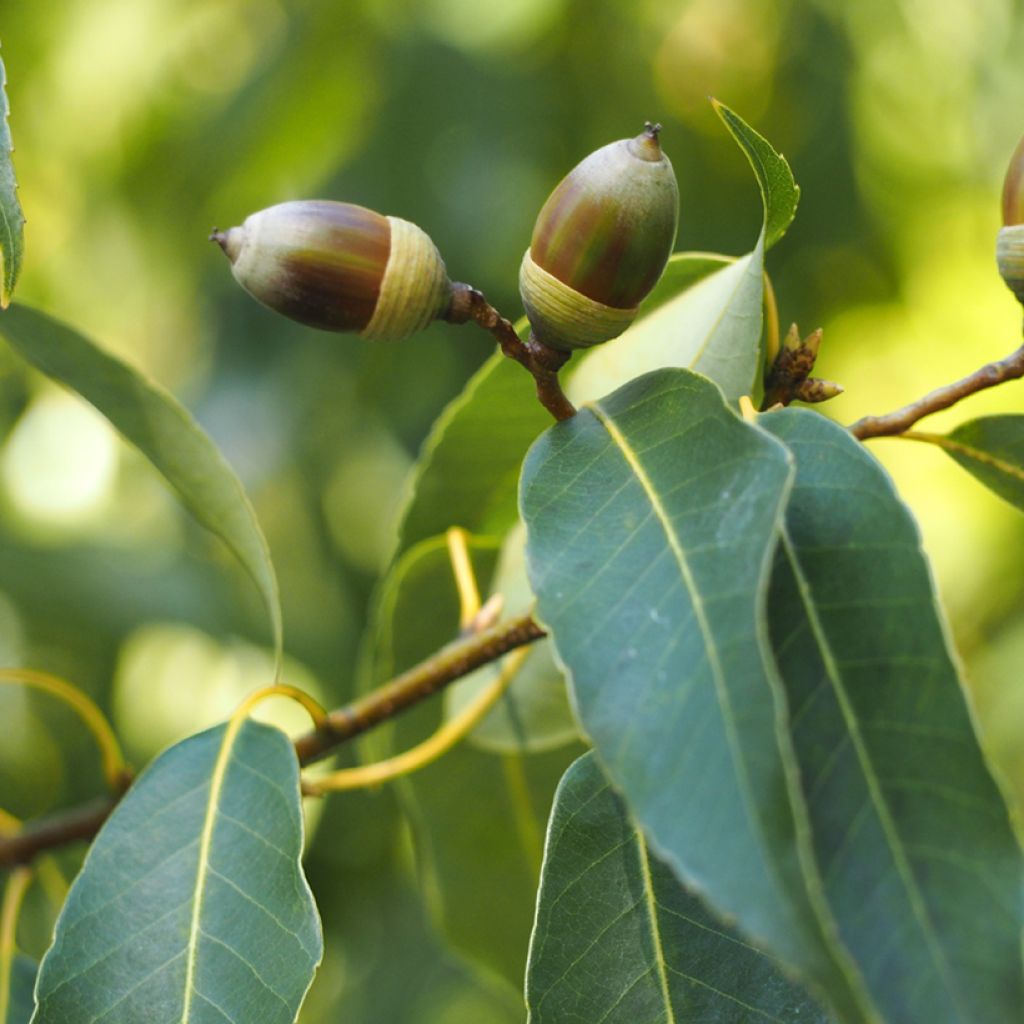

Quercus myrsinifolia
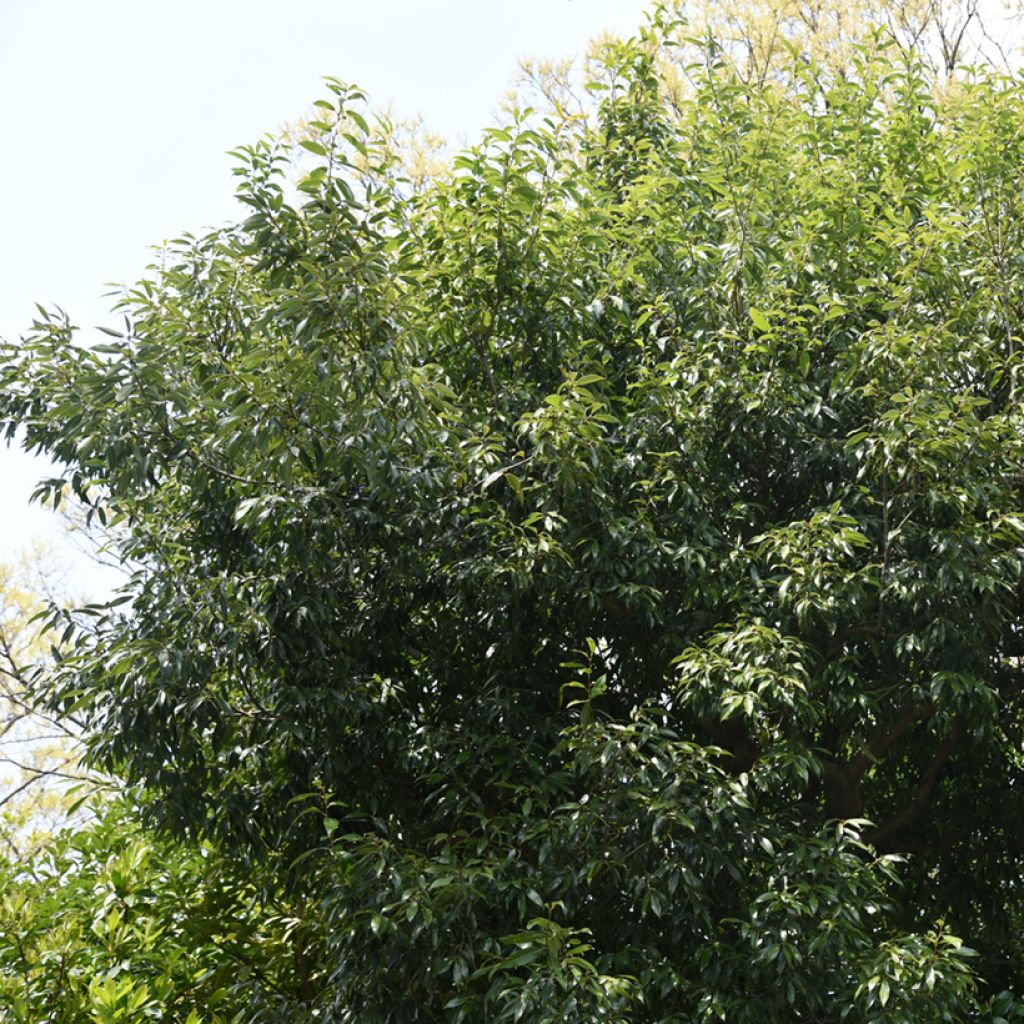

Quercus myrsinifolia
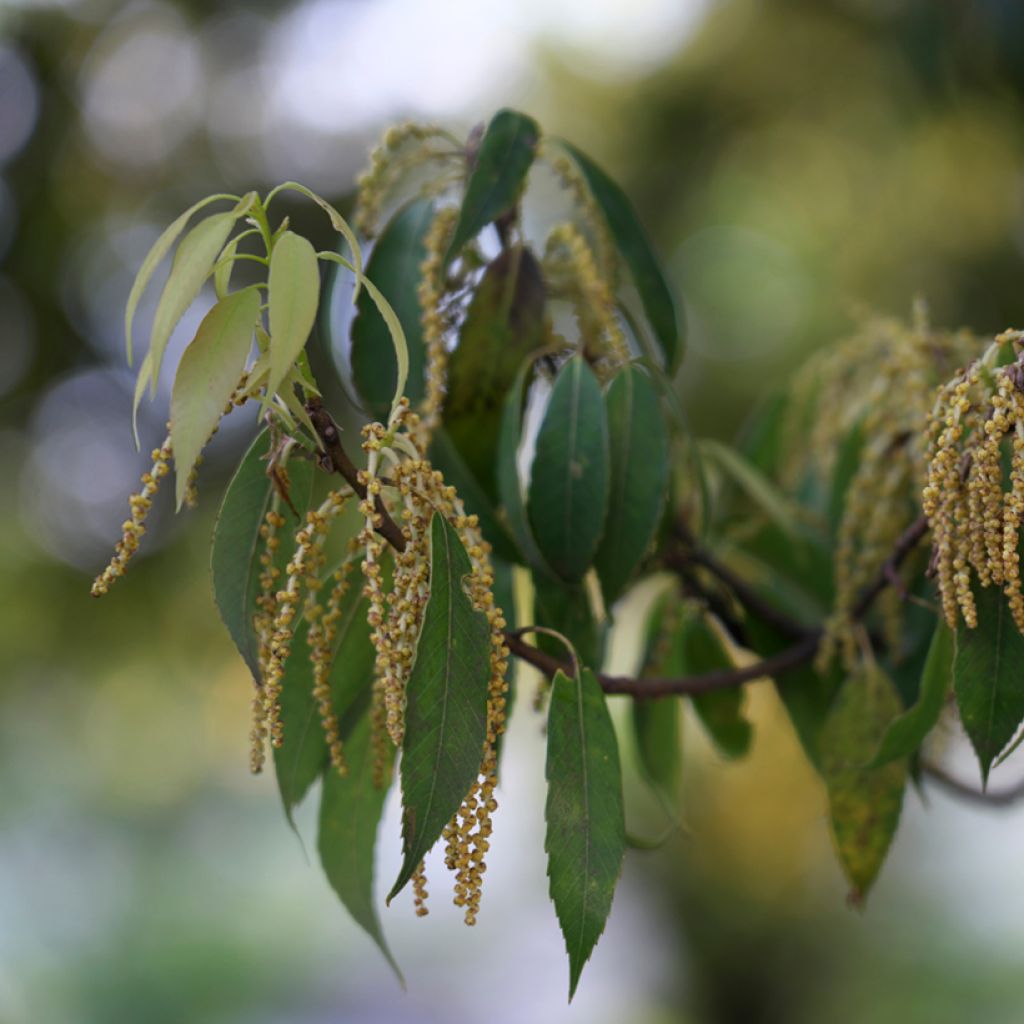

Quercus myrsinifolia
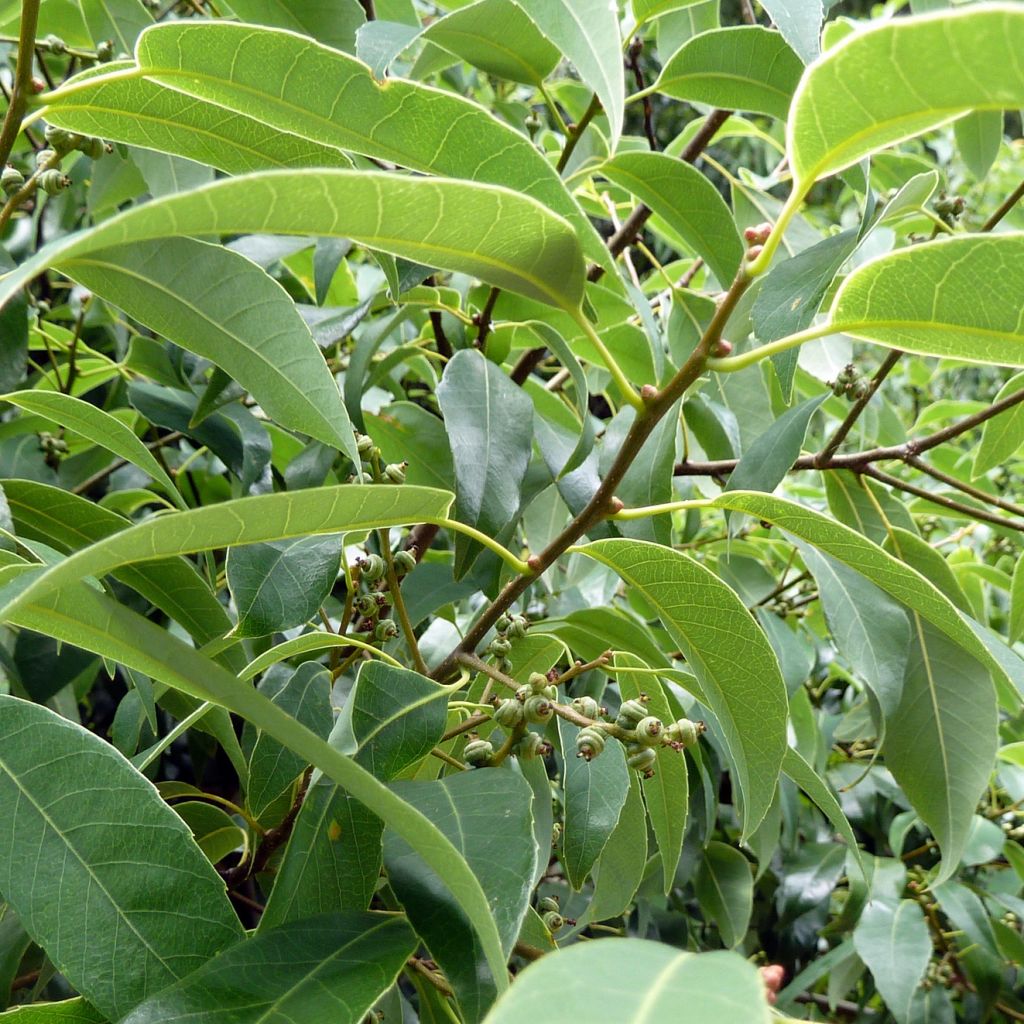

Quercus myrsinifolia
Quercus myrsinifolia
Quercus myrsinifolia
Bamboo-leaf Oak, Chinese Evergreen Oak, Chinese Ring-cupped Oak
This item cannot be shipped to the selected country
Delivery charge from €5.90
Oversize package delivery charge from €6.90
Delivery to Corse prohibited
More information
Schedule delivery date,
and select date in basket
This plant carries a 24 months recovery warranty
More information
We guarantee the quality of our plants for a full growing cycle, and will replace at our expense any plant that fails to recover under normal climatic and planting conditions.
From €5.90 for pickup delivery and €6.90 for home delivery
Express home delivery from €8.90.
Oversize package: home delivery by special carrier from €6.90 per order..
Express home delivery from €8.90.
Delivery to Corse prohibited: UE law prohibits the import of this plant from mainland France to Corse as part of the fight against Xylella fastidiosa. Please accept our sincere apologies.
More information

Does this plant fit my garden?
Set up your Plantfit profile →
Description
Quercus myrsinifolia, also known as Bamboo-leaved Oak, is a rare small tree from the land of the rising sun. Pyramidal in its youth, it takes its time to balance its habit and form a rounded crown. It unfolds an elegant and slender foliage, bronze when budding, green in summer, turning purple in autumn, more or less evergreen in winter. Its bark is dark gray, punctuated with lenticels. This hardy species will thrive in a damp, neutral to acidic, fertile soil, in full sun.
The Bamboo-leaf Oak belongs to the Fagaceae family. It comes from the southeast of Japan, not far from the city of Osaka, and southern China, in the mountains overlooking the Sea of Japan. It grows at low altitudes in deep, humus-rich and light soils, and is exposed to the full force of the sea winds from the Pacific Ocean. Preferring mildness, this tree has adapted perfectly to the London and Scottish winters, where arboretums have welcomed it.
The growth of this oak is very slow; it will reach maturity at around 30 years, forming a small tree 15 m (49ft) tall and 10 m (33ft) wide. In our climates, it will not exceed 5 m (16ft) in height and 3 m (10ft) in width. Its habit, rather conical during its youth, becomes more rounded over the years. Its trunk will always be very straight and short, and its circumference will quickly reach 40 cm (16in) in 5-7 years, supporting powerful branches. It is grey and becomes covered with lenticels as it ages. This oak will live for about 250 years outside its native region. Its slender greyish branches bear characteristic fine lanceolate foliage; each leaf measures 13 cm (5in) in length and 4 cm (2in) in width, and shows pronounced veins. It is bronze to cinnamon-coloured in spring, then shiny green on the upper surface and silvery downy on the underside. They persist during not too harsh winters. Depending on the intensity of the cold, some leaves take on a beautiful purple hue in autumn before falling. It produces greenish flowers in late summer, grouped in pendulous aments. It is a monoecious tree, with separate male and female flowers. It does not bear fruit in our climates, but can develop a sterile acorn, a beautiful acorn with a slightly flattened spiny cupule, which turns from tender green to brown before falling 10 months to 1 year later. Its root system is deep and powerful, of the taproot type, ensuring a solid and lasting anchorage in the humus-rich soils it appreciates.
Quercus myrsinifolia resembles a camphor tree from a distance, without the fragrance of course, but deserves just as much a place of honour in the garden, especially since it will withstand our cold winters much better. It can be planted either in isolation or in rows, in a seaside garden, as it withstands sea spray very well. It naturally belongs in a Japanese-style garden, in front of a bamboo curtain, accompanied by Nandinas and small conifers (Chamaecyparis lawsoniana Yellow Spire, Chamaecyparis obtusa Chirimen). To accompany its beautiful foliage from spring to autumn, you can also choose from numerous infinitely refined Asian flowering shrubs, such as Japanese cherry and apricot trees, deciduous magnolias, azaleas, and autumn camellias, which require the same growing conditions.
Report an error about the product description
Quercus myrsinifolia in pictures
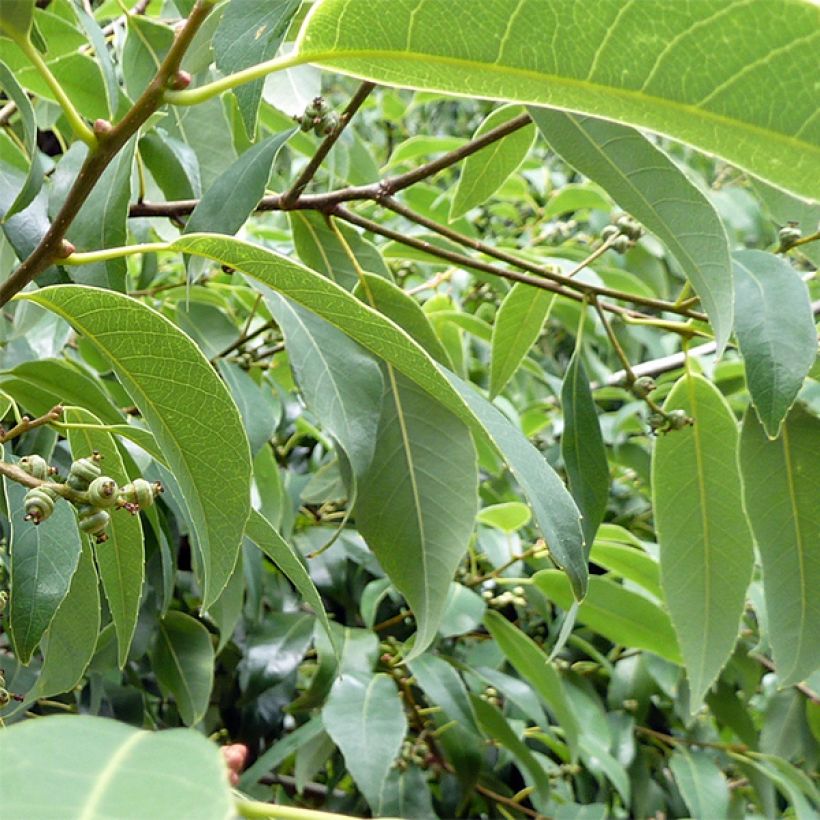

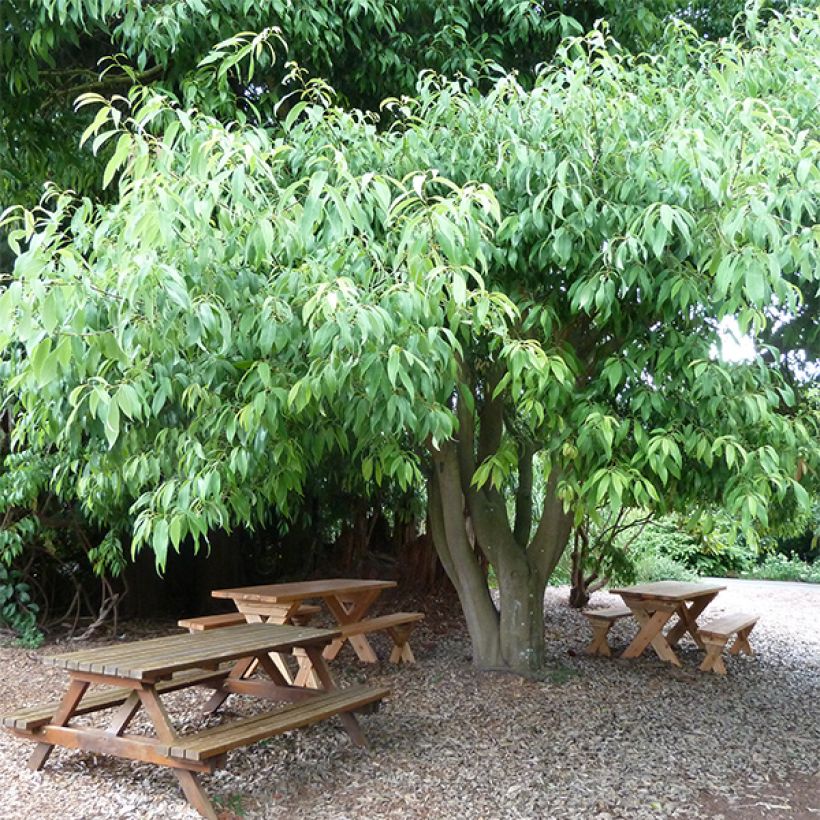

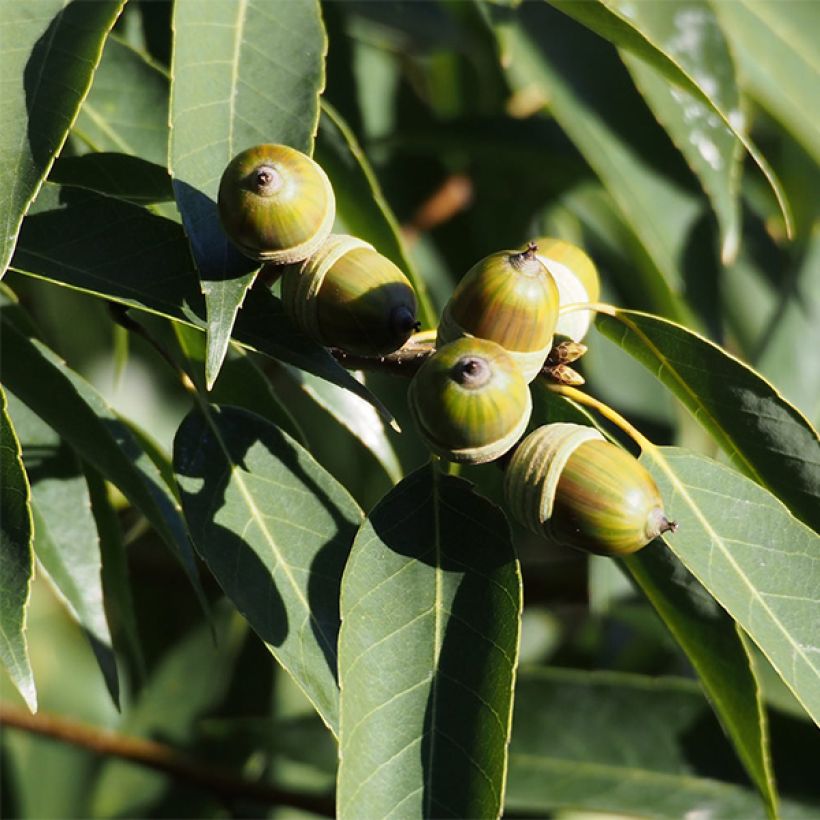

Plant habit
Flowering
Foliage
Botanical data
Quercus
myrsinifolia
Fagaceae
Bamboo-leaf Oak, Chinese Evergreen Oak, Chinese Ring-cupped Oak
Southeast Asia
Other Oak
Planting and care
Quercus myrsinifolia grows spontaneously in forests where the humus is rich from the decomposition of leaves and insects, in deep and damp soil. This is also what we will choose to ensure its good development in the garden. It fears clay and heavy soils, limestone in the soil, and does not tolerate drought. It prefers sunny exposures (4 to 5 hours of sunlight per day), but does not like scorching sunlight. Protect it from excessively cold winters and excessively dry summers in the years following planting. It is a tree that, once established, requires very little maintenance. It is subject to aphid attacks, and fungal diseases can leave marks on its foliage, like a powdery silver substance, powdery mildew is quite common on its foliage.
Planting period
Intended location
Care
-
, onOrder confirmed
Reply from on Promesse de fleurs
Evergreen shrubs
Haven't found what you were looking for?
Hardiness is the lowest winter temperature a plant can endure without suffering serious damage or even dying. However, hardiness is affected by location (a sheltered area, such as a patio), protection (winter cover) and soil type (hardiness is improved by well-drained soil).

Photo Sharing Terms & Conditions
In order to encourage gardeners to interact and share their experiences, Promesse de fleurs offers various media enabling content to be uploaded onto its Site - in particular via the ‘Photo sharing’ module.
The User agrees to refrain from:
- Posting any content that is illegal, prejudicial, insulting, racist, inciteful to hatred, revisionist, contrary to public decency, that infringes on privacy or on the privacy rights of third parties, in particular the publicity rights of persons and goods, intellectual property rights, or the right to privacy.
- Submitting content on behalf of a third party;
- Impersonate the identity of a third party and/or publish any personal information about a third party;
In general, the User undertakes to refrain from any unethical behaviour.
All Content (in particular text, comments, files, images, photos, videos, creative works, etc.), which may be subject to property or intellectual property rights, image or other private rights, shall remain the property of the User, subject to the limited rights granted by the terms of the licence granted by Promesse de fleurs as stated below. Users are at liberty to publish or not to publish such Content on the Site, notably via the ‘Photo Sharing’ facility, and accept that this Content shall be made public and freely accessible, notably on the Internet.
Users further acknowledge, undertake to have ,and guarantee that they hold all necessary rights and permissions to publish such material on the Site, in particular with regard to the legislation in force pertaining to any privacy, property, intellectual property, image, or contractual rights, or rights of any other nature. By publishing such Content on the Site, Users acknowledge accepting full liability as publishers of the Content within the meaning of the law, and grant Promesse de fleurs, free of charge, an inclusive, worldwide licence for the said Content for the entire duration of its publication, including all reproduction, representation, up/downloading, displaying, performing, transmission, and storage rights.
Users also grant permission for their name to be linked to the Content and accept that this link may not always be made available.
By engaging in posting material, Users consent to their Content becoming automatically accessible on the Internet, in particular on other sites and/or blogs and/or web pages of the Promesse de fleurs site, including in particular social pages and the Promesse de fleurs catalogue.
Users may secure the removal of entrusted content free of charge by issuing a simple request via our contact form.
The flowering period indicated on our website applies to countries and regions located in USDA zone 8 (France, the United Kingdom, Ireland, the Netherlands, etc.)
It will vary according to where you live:
- In zones 9 to 10 (Italy, Spain, Greece, etc.), flowering will occur about 2 to 4 weeks earlier.
- In zones 6 to 7 (Germany, Poland, Slovenia, and lower mountainous regions), flowering will be delayed by 2 to 3 weeks.
- In zone 5 (Central Europe, Scandinavia), blooming will be delayed by 3 to 5 weeks.
In temperate climates, pruning of spring-flowering shrubs (forsythia, spireas, etc.) should be done just after flowering.
Pruning of summer-flowering shrubs (Indian Lilac, Perovskia, etc.) can be done in winter or spring.
In cold regions as well as with frost-sensitive plants, avoid pruning too early when severe frosts may still occur.
The planting period indicated on our website applies to countries and regions located in USDA zone 8 (France, United Kingdom, Ireland, Netherlands).
It will vary according to where you live:
- In Mediterranean zones (Marseille, Madrid, Milan, etc.), autumn and winter are the best planting periods.
- In continental zones (Strasbourg, Munich, Vienna, etc.), delay planting by 2 to 3 weeks in spring and bring it forward by 2 to 4 weeks in autumn.
- In mountainous regions (the Alps, Pyrenees, Carpathians, etc.), it is best to plant in late spring (May-June) or late summer (August-September).
The harvesting period indicated on our website applies to countries and regions in USDA zone 8 (France, England, Ireland, the Netherlands).
In colder areas (Scandinavia, Poland, Austria...) fruit and vegetable harvests are likely to be delayed by 3-4 weeks.
In warmer areas (Italy, Spain, Greece, etc.), harvesting will probably take place earlier, depending on weather conditions.
The sowing periods indicated on our website apply to countries and regions within USDA Zone 8 (France, UK, Ireland, Netherlands).
In colder areas (Scandinavia, Poland, Austria...), delay any outdoor sowing by 3-4 weeks, or sow under glass.
In warmer climes (Italy, Spain, Greece, etc.), bring outdoor sowing forward by a few weeks.

































